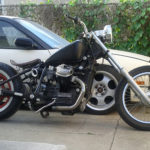Clint Eastwood is 95! And the most amazing thing is that with such fantastic numbers on the scoreboard of life, we can’t talk about it in the past tense. Perhaps we are still waiting for some new tapes shot by this Master of the screen. And this is not a fantastic story at all, because his senior colleague in the workshop, Portuguese Manuel de Oliveira, shot the film at the age of 105.
Clint Eastwood became a Hollywood star in the late 1960s, one might say, from the back door or, to use another metaphor, through a lucky lottery ticket, as one might call his participation in the “dollar trilogy”, i.e. the first spaghetti westerns of Sergio Leone shot in Spanish scenery. With the release of these non–classical masterpieces on the screens of America in 1967 – 1968, the actor who played the “Man without a Name” entered the top league of world cinema. But, as a self-made man who comprehended the wisdom of the artist’s profession on the set, without having a special university education, Eastwood studied directing along the way, watching how such remarkable talents as Sergio Leone and Don Siegel worked (with the latter he worked in as many as five movies). And since the early 1970s, Clint began to replenish his directorial filmography, gaining experience and transferring to the screen not only the western plots that made him a name in the film world. We invite you to recall the magnificent top ten of Eastwood’s screen creations.
10. The Richard Jewell Case (2019)

This tape by Clint Eastwood refers viewers to the real dramatic events that happened at the end of July 1996 in Atlanta, where the XXVI Olympic Games took place at that time. Security guard Richard Jewell (Paul Walter Hauser, Black Bird) discovers a backpack with an explosive mechanism in the Olympic Park, thus saving hundreds of people. But soon from the status of a hero, he becomes the main suspect. The confrontation of the wrongly accused person with the law enforcement system becomes the plot outline of this dramatic film story, shot by an almost 90-year-old Master who has not lost his directorial acumen at all.
9. Letters from Iwo Jima (2006)

This second tape of the dilogy started by the film “Flags of our Fathers” returns to the events of the fierce battle for the island of Iwo Jima in February–March 1945. Only in this tape the events are shown from the point of view of the defenders of the island – Japanese soldiers and officers. This is Clint Eastwood’s only non–English-language movie – all the characters in this heart-touching film speak Japanese. The film won two Golden Globe Awards for the best foreign language film and for directing.
8. Invictus (2009)

This dramatic story is based on the real events of 1995, when the team of the Republic of South Africa won the Rugby World Cup. It was this event that was able to unite into a single nation both the black and white population of the country, until recently divided by the policy of apartheid. The role of the legendary Nelson Mandela, from political prisoner No. 1 who became President of South Africa at that time, was played by Morgan Freeman. And the role of the playing coach of the star rugby team Francois Pienaar was embodied on the screen by Matt Damon. For these roles, both performers received Oscar nominations. And Clint Eastwood again acted as one of the authors of the music for his film.
7. The Mystic River (2003)

This dramatic film by Clint Eastwood is considered a neo-noir genre. The action of the tape begins in the mid-seventies, when two criminals kidnap and abuse one teenager from the company of boys playing street hockey. A quarter of a century later, Dave (the same boy) is haunted by memories of an ill-fated day. And soon there is a murder of the daughter of one of his friends, who was going, contrary to her father’s wishes, to escape to Las Vegas with her lover. The investigation of this complicated case is conducted by two detectives (their roles were played by Kevin Bacon and Laurence Fishburne)… For the roles of the two main characters of this film adaptation of Dennis Lehane’s novel, Sean Penn and Tim Robbins received Oscar statuettes. And the music for the film was written by the director of the tape himself.
6. Unforgiven (1992)

This Eastwood movie (based on the script by David Peoples, which was originally written for Francis Ford Coppola) belongs to the genre of revisionist westerns, and the time of action is the most classic Western – the 1880s. Aging criminal and murderer Will Money, years after leading a measured life as a farmer, takes on another case. An old widower raising two children decides to earn extra money to save his failing farm. The main role was played by the creator of the tape himself, and his partners were such wonderful filmmakers as Gene Hackman, Richard Harris and Morgan Freeman. The film was nominated by the American Film Academy in 9 categories at once and brought Clint Eastwood two main awards – for best film and best director. The great Gene Hackman received his acting Oscar for the role of the sheriff.
5. Changeling (2008)

The script of this crime drama was written by Michael Strazhinsky (creator of the plot basis of the cult series in the genre of space opera “Babylon 5”). And the real events underlying the tape happened almost a century ago in the late 1920s. The disappearance of a little boy, and a few years later, as if his inexplicable return to his mother triggers the action of this mysterious story. Such wonderful actresses as Reese Witherspoon and Hilary Swank were considered for the main female role, but the final choice fell on Angelina Jolie, who received a golden Oscar statuette for her work in the film. And the jazz, matching the time of action, music for the film was written by Clint Eastwood himself.
4. A Perfect World (1993)

This crime-related movie takes viewers back to the early 1960s. Escaped prisoner Butch Haynes (played by Kevin Costner) takes an eight-year-old boy hostage, and his pursuer becomes a Texas ranger, played by the director of the tape. This is the plot of this thriller, which Steven Spielberg originally also wanted to stage, right after his Jurassic Period. Although the movie did not receive proper recognition from the audience at the American box office, it became one of the hits of the world screen of the mid-1990s.
3. The Bridges of Madison County (1995)

The rights to the film adaptation of Robert Waller’s 1992 bestseller of the same name were soon acquired by Steven Spielberg’s company, which initially offered the director’s chair to Sidney Pollack (the director of the legendary Tootsie with Dustin Hoffman in the title role). Then, during the reworking of the script, Spielberg himself could have become the director of the tape, but, in the end, the movie was shot by Clint Eastwood, originally selected for one of the main roles of a dramatic love story in the landscapes of Madison County (Iowa). The performer of the main female role, the great American actress Meryl Streep received one of her (now in her third decade) Oscar nominations.
2. Million Dollar Baby (2004)

A movie from the subgenre of sports dramas, the heroine of which (in everyday life, a simple waitress) Maggie aspires to become a boxer (we use here a feminitive unusual for Russian hearing). And the guides to the heroine’s dream are the grumpy but good–natured coach Frankie Dunn (his role was played by the director of the tape himself) and his assistant Eddie, for whose role Morgan Freeman received an Oscar. In total, the film received seven nominations for the Academy Award and four statuettes. Hillary Swank won the Oscar for the leading female role, and Clint Eastwood received two main awards – for Best Movie and Best Director.
1. Gran Torino (2008)

The drama is about an elderly veteran of the Korean War, whose screen avatar was Clint Eastwood himself. A former worker of the Detroit auto giant Ford Motors, Walt Kowalski has recently been widowed and will soon celebrate his 80th birthday in the world of a devastated metropolis, which is increasingly run by gangster groups. One of them decides to profit from the old Ford car of the main character. This is how the plot, familiar to Eastwood’s movies, begins – the confrontation between a lone hero and his opponents. Although this movie did not receive (for some inexplicable reason) a single nomination for the Academy Award, in the USA it was recognized as one of the best films of the year, and in France (which noted Eastwood’s merits by elevating him to the status of chevalier in 2007 and Commander of the Legion of Honor in 2009) Gran Torino He received the Cesar Award as the best foreign film.













